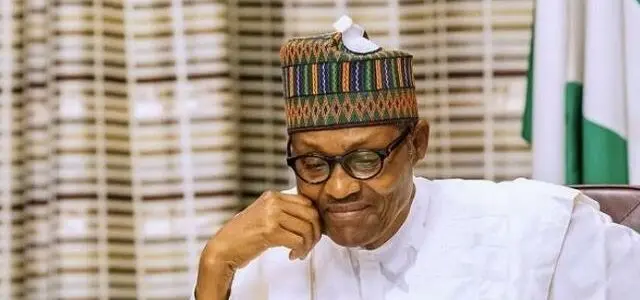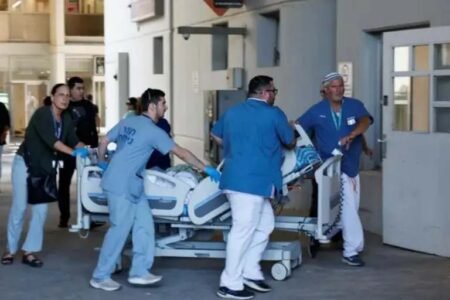Garba Shehu, the former Special Assistant on Media and Publicity to ex-President Muhammadu Buhari, has disclosed that the narrative about rats invading the Presidential Villa was made up to distract attention from Buhari’s health difficulties.
In his book “According to the President: Lessons from a Presidential Spokesperson’s Experience”, which was released on Tuesday in Abuja, Shehu said that he created the Villa rat invasion narrative to divert public attention away from concerns about President Buhari’s health and ability to rule.
Prior to Buhari’s return to Nigeria on August 19, 2017, following nearly three months of medical treatment in the United Kingdom, Indigenous People of Biafra leader Nnamdi Kanu claimed that Buhari had been replaced by a Sudanese clone named Jibrin.
When Buhari returned, several Nigerians began to wonder whether he was the real Buhari or the so-called clone, Sudan’s Jibrin, as Kanu alleged.
The scenario became more suspect when the presidency stated that Buhari would be working from home rather than his office at the State House, raising concerns about his health and leadership abilities.
In Chapter 10 of the book, titled “Rats, Spin and All That”, Garba Shehu revealed that the situation became a serious concern for him after Buhari’s social media aide, Bashir Ahmad, announced on Twitter (now X) that the former president had returned but would be working from home.
Shehu narrated, “So in the few hours of the president’s return, I picked up a conversation in the office of the CoS, where the chief, a few principal officers and the permanent secretary sat over lunch; a damage to a cable was noticed, and it needed fixing.
“Someone speculated that rats may have caused that damage, given that the office was unused for a long time.
“When the surge in calls for an explanation of why the president would be working from home, if truly he had recovered his health and was fit for the office, came, I said to the reporters that the office, which had been in disuse, needed renovation because rats may have eaten and damaged some cables.”
Shehu recounted that the story of rodents invading Nigeria’s Presidential Villa and destroying furniture and the air conditioning system went global, even ranking as one of the top five news stories on the BBC World News broadcast.
The ex-presidential spokesperson in the book continued, “With reporters wanting to know more, the number of calls increased, with some, including the BBC Hausa, interrogating me on the type of rats we had in the villa that could eat wire cables.
“To get them (journalists) off my back, I referred them to the strange rats that invaded the country in the 1980s during the rice armada that came here aboard ships bringing the commodity from Southeast Asia.
“As was known of them, in their destructiveness, those rats ate just anything anyone could imagine. Many critics disagreed with me, saying that we were covering up the president’s ill health. Some people had a good laugh over the narrative, and an insignificant few believed me.
“At a later meeting, the Minister of Information, Alhaji Lai Mohammed, and Vice President Prof. Yemi Osinbajo asked me why I had taken that line of story.
“I said to them that the choice I made was deliberate: I wanted the discussion to shift, to move to any other issue besides the president’s health and his ability to continue in office as the leader of the country. In my view, that spin succeeded. Both of them disagreed, saying that this was well off the mark.”











